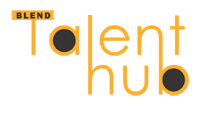C & C plus plus Course Duration: 70 hrs Practical training classes
Training Centers: Courses are run
in our Pune offices
Class Timings & Schedules: Both on Weekdays /
Weekends Available
Mock Tests and Mock Interviews
Pre-Requisite:Freshers, pass out Graduates, Job
Seekers and Software Developer Any
Extras: Resume Preparation Support & Interview
Questions & Answers will be covered along with course
LAB Facility: C C++ Training is designed tentatively
for each batch with Hands on Experience exposures in the Lab session. The Lab
sessions are followed along with the Theory in the respective day itself.
About the Best Trainer
At TalentHub, Trainers are highly experienced and Certified Trainers qualified to deliver Interview and JOB Oriented C C++ training Course syllabus whether it’s a Classroom training session or an Online Courses.
Real Time C C++ Course Outline:
Why Object Oriented?
The Software Crisis
Design Techniques
Large Software Systems
C++ and Object-Oriented Programming
Why C++ & Features of C++?
The Language of Object-Orientation
Class and object
Encapsulation
Data Hiding
The Public Interface
Relationships Among Classes
Inheritance
Polymorphism
Object-Oriented Design
C vs. C++
Comments
Namespaces
Simple Input/Output
Function Prototypes
Preprocessor
The inline Specifires
Structure Members
The Reference Type
Overloading Function Names
Default Parameters
The Scope Resolution Operator
Aggregates
Operators new and delete
Fundamentals of Classes
Data Types
User Defined Data Types
Defining a Class
public and private Access Levels
The Scope Resolution Operator ::
Using Class Objects Like Built-in Types
Scope
Constructors & destructors
Member Initialization Lists & initializing reference data members
Array of Objects
Pointers
The this Pointer
Passing and returning Objects to/from Functions
static Class Members
Operator Overloading
Introduction
Rules for Operator Overloading
Rationale for Operator Overloading
Overloading Member/non-Member Functions
friend Functions
Copy Constructor
Assignment Operator
Overloading
Overloading Increment and Decrement Operators
const Objects and References
Operators, which cannot be overloaded
Composition of Classes
Relationships
Composition of Classes
Member Initialization Lists
Copy Constructor Under Composition
operator= Under Composition
Inheritance
Introduction
Public Base Classes
The protected Access Level
Member Initialization Lists
Assignments Between Base and Derived Objects
Compile-Time vs. Run-Time Binding
virtual Functions
Polymorphism
virtual Destructors
Pure virtual Functions
Abstract Base Classes, to define interfaces
I/O in C++
The iostream Library
Predefined Streams
Overloading operator<<
Overloading operator>>
Manipulators
Stream States
Formatted I/O
Disk Files
Reading and Writing Objects
Advanced Topics
Template Functions
Template Classes
Multiple Inheritance
User-Defined Conversions
Data Structures
An Iterator Class
Exceptions
Introduction to the Standard Template Library
Introduction
The Standard Template Library
Design Goals
STL Components
Iterators
vector,list,set
Function Objects
Adaptors
Design Patterns
What are Design Patterns
Singleton
Proxy Facade
Model View Controller
How Design Patterns resolve common Design Problems
Miscelleneous
C++ Good Practices to develop Robust code
Memory Leaks
Inner or Nested classes
 Average of 4.8out of 5Based on 383 Votes.
Average of 4.8out of 5Based on 383 Votes.6 days Ago
Getting trained at BTH is an amazing experience for .NET in Pune helped to sharpen my .NET skills.
Rating:
 4/5 Star Rating: Good
4/5 Star Rating: GoodDot Net training Pune
Reviewed bySojal
9 days Ago
Trainer are Very helping and also giving more information than just a training
Rating:
 4/5 Star Rating: Good
4/5 Star Rating: GoodDot Net training Pune
Reviewed bySonali
18 days Ago
I Joined BTH for Combo course Php + Testing I got excellent training and placement in McLean Technolgy... Thanks Blend TalentHub for such great career gift
Rating:
 5/5 Star Rating: Good
5/5 Star Rating: Good